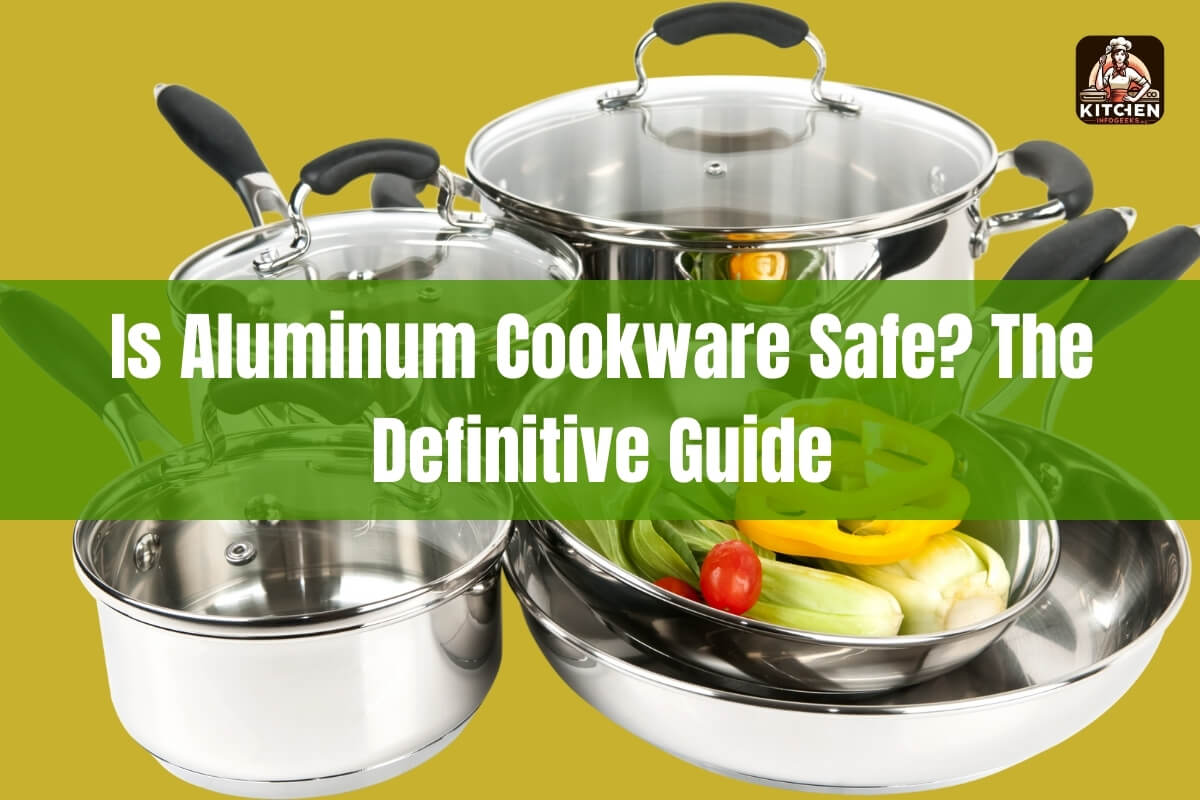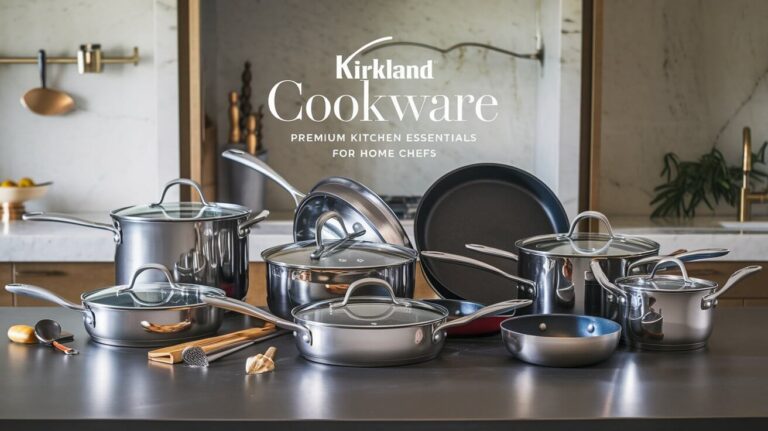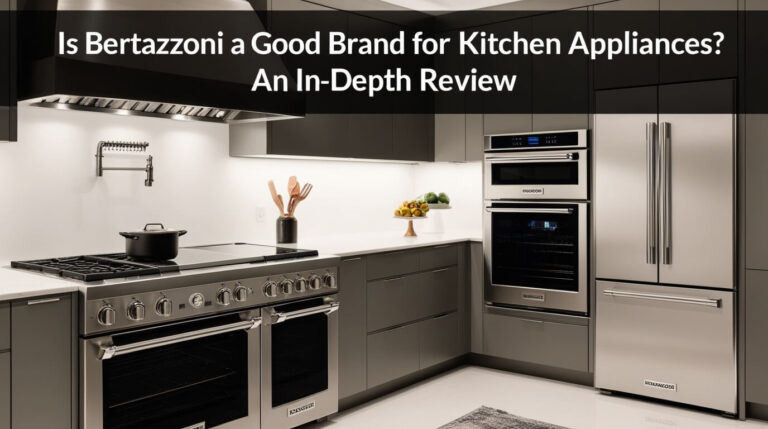
Are you concerned about the safety of using aluminum cookware in your kitchen? With conflicting information and ongoing debates, it’s natural to have questions about the potential risks and benefits. In this comprehensive guide, we’ll dive deep into the topic of aluminum cookware safety, exploring the latest research, expert opinions, and practical tips to help you make an informed decision.
The key question we aim to answer is: Is aluminum cookware safe for cooking? While there’s no simple yes or no answer, we’ll provide you with a thorough understanding of the factors involved, so you can weigh the risks and benefits based on your individual needs and cooking habits.
Here’s what we’ll cover:
- Understanding the pros and cons of aluminum cookware
- The debate surrounding aluminum exposure and potential health effects
- Safety tips for using aluminum cookware
- Healthier alternatives to aluminum cookware
- Weighing the risks and benefits to make an informed decision
So, let’s get started!
Understanding Aluminum: Pros and Cons
Aluminum cookware has been a kitchen staple for decades, thanks to its affordability, excellent heat conductivity, and lightweight nature. These advantages have made aluminum a popular choice among home cooks and professional chefs alike.
Pros of Aluminum Cookware:
- Affordability: Aluminum is an abundant metal, making it relatively inexpensive compared to other materials like stainless steel or copper.
- Heat Conductivity: Aluminum is an excellent heat conductor, allowing for even cooking and temperature distribution across the surface.
- Lightweight: Aluminum pots and pans are easy to handle, making them convenient for everyday use.
However, despite these benefits, aluminum cookware has also been the subject of ongoing debates and concerns regarding potential health risks.
Cons and Potential Health Risks of Aluminum Cookware:
- Leaching of Aluminum: Under certain conditions, aluminum can leach into food during cooking, potentially leading to increased aluminum exposure.
- Reactivity with Acidic Foods: Aluminum is reactive with acidic foods like tomatoes, citrus fruits, and vinegar, which can cause increased leaching.
- Potential Neurotoxicity: While the link is still being researched, some studies suggest that long-term exposure to high levels of aluminum may contribute to neurodegenerative diseases like Alzheimer’s.
It’s important to note that while these concerns exist, the amount of aluminum leaching from cookware during normal cooking is generally considered minimal and within safe limits for most people.
The Debate: Is Aluminum Cookware Safe for Cooking?
The debate surrounding the safety of aluminum cookware has been ongoing for years, with conflicting opinions and research findings. Let’s explore some of the key points in this debate.
Aluminum Exposure and Potential Health Effects:
Aluminum is a neurotoxin, meaning it can have harmful effects on the nervous system if ingested in large quantities. However, the human body is capable of efficiently eliminating small amounts of aluminum through urine.
Some studies have raised concerns about the potential link between aluminum exposure and neurodegenerative diseases like Alzheimer’s. However, it’s essential to note that these studies have not established a definitive causal relationship, and reputable organizations like the Alzheimer’s Association have debunked the myth linking aluminum cookware to Alzheimer’s disease.
Leaching of Aluminum into Food:
The amount of aluminum that leaches from cookware into food can vary depending on several factors:
- Type of Food: Acidic foods like tomatoes, citrus fruits, and vinegar can increase the leaching of aluminum due to their natural acidity.
- Temperature: Higher cooking temperatures can cause increased leaching of aluminum.
- Duration of Cooking: The longer the food is in contact with the aluminum surface, the more leaching can occur.
- Condition of the Cookware: Scratched or pitted aluminum cookware can increase the rate of leaching.
While some aluminum leaching may occur during cooking, the amount is generally considered minimal and within safe limits for most people, according to health agencies like Health Canada and the World Health Organization.
Cooking Acidic Foods in Aluminum Pans
One of the primary concerns regarding aluminum cookware is the potential for increased leaching when cooking acidic foods like tomatoes, citrus fruits, and vinegar. These acidic ingredients can react with the aluminum surface, causing more of the metal to leach into the food.
If you frequently cook acidic dishes in aluminum pans, it’s recommended to consider switching to non-reactive cookware materials like stainless steel or enameled cast iron. Alternatively, you can use anodized aluminum cookware, which has a protective layer that reduces leaching.
High-Temperature Cooking and Aluminum Leaching
Another factor that can contribute to increased aluminum leaching is high cooking temperatures. When aluminum cookware is exposed to extremely high heat, the metal can become more reactive, leading to more leaching into the food.
To minimize this risk, it’s advisable to avoid using aluminum cookware for high-temperature cooking methods like broiling or searing. Instead, opt for materials like cast iron or stainless steel, which can better withstand high heat without compromising safety.
Anodized Aluminum: A Safer Alternative?
Anodized aluminum cookware has undergone a special treatment that creates a protective oxide layer on the surface of the aluminum. This layer can make the cookware more resistant to leaching, scratches, and corrosion.
While anodized aluminum cookware may be a safer option compared to regular aluminum, it’s important to note that the protective layer can wear down over time, especially with improper care and use. Additionally, there is limited information on the potential toxicity of the anodized layer itself.
If you choose to use anodized aluminum cookware, follow the manufacturer’s instructions for proper care and maintenance, and consider replacing it once the protective layer shows signs of wear and tear.
Safety Tips for Using Aluminum Cookware
If you decide to continue using aluminum cookware, it’s essential to follow safety guidelines to minimize potential risks and ensure proper care and maintenance.
Avoiding Scratches and Damage
Scratches and damage to the surface of aluminum cookware can increase the rate of aluminum leaching into food. To prevent this:
- Use non-abrasive cleaning tools like soft sponges or cloths.
- Avoid using metal utensils that can scratch the surface.
- Replace cookware that shows signs of excessive scratches, pitting, or damage.
Proper Cleaning and Maintenance
Proper cleaning and maintenance of aluminum cookware can help extend its lifespan and reduce the risk of leaching. Here are some tips:
- Hand-wash aluminum cookware with mild soap and water.
- Avoid using harsh abrasive cleaners or scouring pads.
- Dry the cookware thoroughly before storing to prevent corrosion.
- Store aluminum cookware in a dry, cool place, and avoid stacking to prevent scratches.
Cooking Techniques to Minimize Aluminum Exposure
While aluminum leaching is generally minimal during normal cooking, there are certain techniques you can follow to further reduce your exposure:
- Avoid cooking acidic foods for extended periods in aluminum cookware.
- Use moderate cooking temperatures and avoid extreme heat.
- Consider using alternative cookware materials for high-temperature cooking methods.
- Limit the time food is in contact with the aluminum surface.
Healthier Alternatives to Aluminum Cookware
If you’re concerned about the potential risks associated with aluminum cookware, there are several healthier alternatives available. Here are some popular options:
Stainless Steel Cookware
Stainless steel cookware is a popular and safe choice for many home cooks. It’s durable, non-reactive, and easy to maintain. Additionally, stainless steel cookware often features an aluminum or copper core for improved heat conductivity.
Cast Iron Cookware
Cast iron cookware is renowned for its excellent heat retention and even cooking properties. It’s also naturally non-stick when properly seasoned and can last for generations with proper care.
Ceramic and Enamel Cookware
Ceramic and enamel-coated cookware offer a non-toxic, non-reactive surface for cooking. These materials are generally safe and easy to maintain, although they may not be as durable as other options.
Other Non-Toxic Options
Other non-toxic cookware options include glass, copper (with a non-reactive lining), and carbon steel. These materials can provide safe and effective alternatives to aluminum, but they may come with higher price tags or require more maintenance.
Weighing the Risks and Benefits
Ultimately, the decision to use aluminum cookware or opt for safer alternatives comes down to weighing the potential risks and benefits based on your individual needs and circumstances. Here are some key factors to consider:
Age and Condition of Cookware: If you have older, scratched, or pitted aluminum cookware, the risk of increased aluminum leaching is higher. Newer, well-maintained aluminum cookware poses a lower risk.
Cooking Habits: If you frequently cook acidic foods or use high-temperature cooking methods, aluminum cookware may not be the safest choice. Those who primarily cook non-acidic foods at moderate temperatures may find aluminum cookware more suitable.
Health Considerations: Individuals with kidney problems or those advised to limit aluminum exposure should exercise caution with aluminum cookware. Pregnant women, young children, and the elderly may also be more vulnerable to potential risks.
Budget and Lifestyle: While safer alternatives like stainless steel or cast iron may be more expensive upfront, they can be a worthwhile investment for those concerned about potential health risks. However, aluminum cookware remains an affordable and accessible option for many households.
It’s crucial to weigh these factors against the latest research and recommendations from reputable health organizations. While the amount of aluminum leaching from cookware is generally considered minimal, some experts still recommend minimizing exposure as a precautionary measure.
If you decide to continue using aluminum cookware, follow the safety tips outlined earlier, such as avoiding acidic foods, cooking at moderate temperatures, and maintaining proper care and maintenance. Additionally, consider gradually replacing older, damaged pieces with safer alternatives as your budget allows.
Ultimately, the choice depends on your personal risk tolerance, cooking habits, and overall health considerations. By making an informed decision based on credible information and your individual circumstances, you can ensure a safer and more enjoyable cooking experience.
Conclusion
In conclusion, the debate surrounding the safety of aluminum cookware is ongoing, with various factors to consider. While the amount of aluminum leaching from cookware during normal cooking is generally considered minimal and within safe limits for most people, there are potential risks associated with long-term exposure and certain cooking practices.
To summarize the key points:
- Aluminum cookware has advantages like affordability, heat conductivity, and lightweight design, but also potential health risks related to aluminum leaching and reactivity with acidic foods.
- Cooking acidic foods, using high temperatures, and having scratched or damaged cookware can increase the risk of aluminum leaching.
- Anodized aluminum cookware may offer a safer alternative, but the protective layer can wear down over time.
- Safer alternatives include stainless steel, cast iron, ceramic, and other non-toxic materials, but these may come with higher costs or maintenance requirements.
- Weighing the risks and benefits based on your individual needs, cooking habits, and health considerations is crucial in deciding whether to use aluminum cookware or opt for safer alternatives.
Ultimately, prioritizing safety and making informed choices about your cookware can contribute to a healthier and more enjoyable cooking experience. By following the tips and guidelines outlined in this guide, you can make an informed decision that aligns with your personal preferences and health goals.
Remember, the key is to stay informed, consider credible sources, and prioritize your well-being when it comes to the safety of your cookware.






